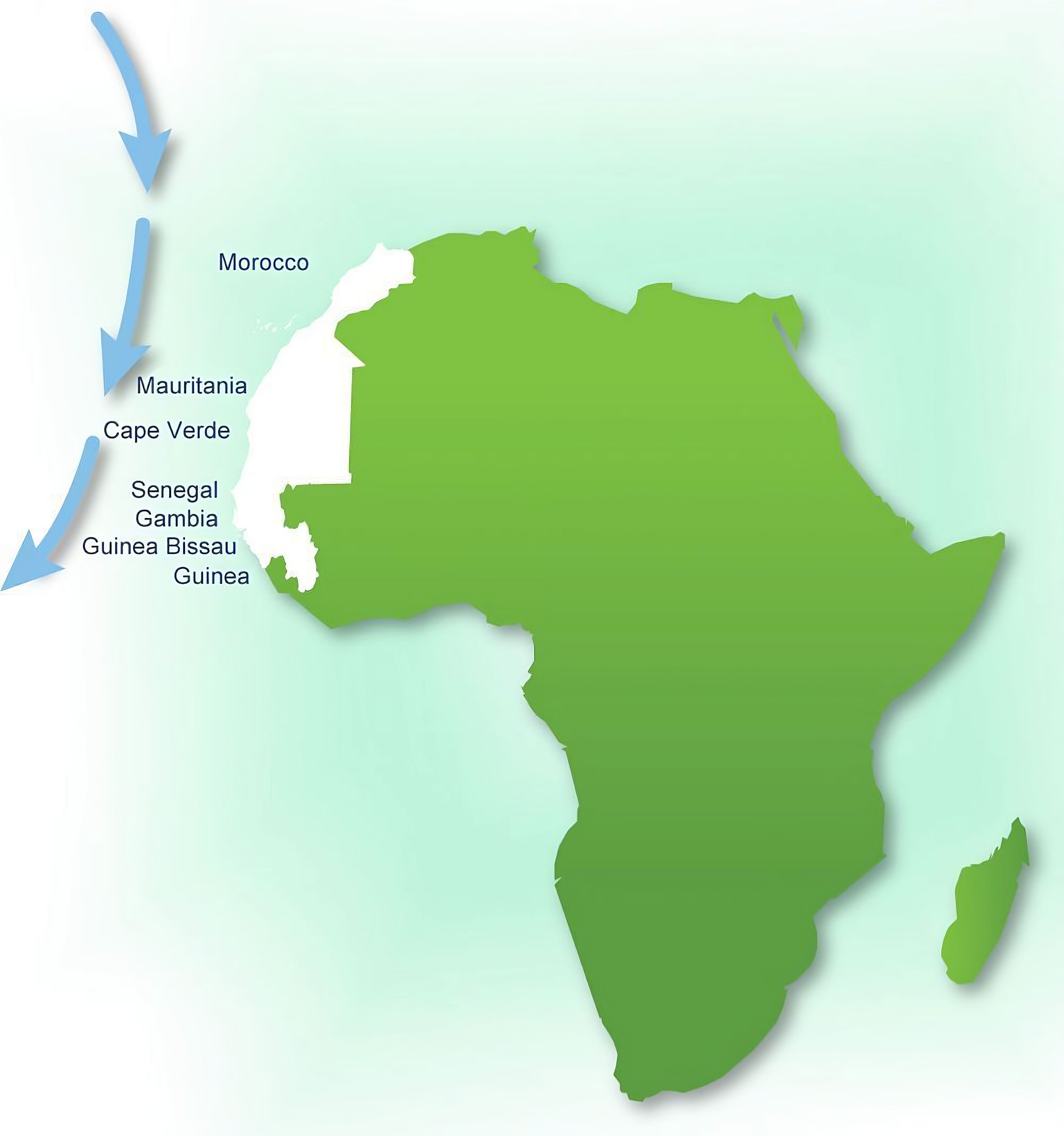“Towards sustainable management of the Canary Current Large Marine Ecosystem (CCLME) – initial support to SAP implementation”
“Towards
sustainable management of the Canary Current Large Marine Ecosystem"
(CCLME) project is unique in its strategic combination of fisheries and
ecosystem governance frameworks.

The Canary Current Large Marine Ecosystem is one of the world's most productive and biologically diverse Large Marine Ecosystems. It features a diverse range of marine and coastal habitats including wetlands, estuaries, seagrass beds, mangroves, and coral communities that host many endemic and migrant species. Annual fisheries production from the CCLME ranges from 2 to 3 million tonnes, the highest fisheries production of any African LME, with the total value of catches exceeding US$3 billion per year. The CCLME provides vital food and economic resources to coastal populations bordering the Large Marine Ecosystem and much of West Africa.
The GEF investment in the CCLME started in 2005 with a preparatory phase that initiated the development of a Transboundary Diagnostic Analysis (TDA) of the CCLME. The preparatory phase was followed by implementing the “Protection of the Canary Current Large Marine Ecosystem (CCLME)” project from 2010 to 2017. Under this project, the CCLME countries - Cabo Verde, Guinea, Guinea-Bissau, Mauritania, Morocco, Senegal, and the Gambia - prepared and endorsed a Strategic Action Programme (SAP) to address the degradation of the CCLME caused by overfishing, habitat modification, and changes in water quality. The SAP focuses on solutions and management actions for the CCLME that will result in a healthy ecosystem, sustainably managed, providing services and equitable benefits for human well-being by 2030. Implementation of the SAP will address the root causes of concern at various levels by removing key barriers and putting in place a suite of measures based on the implementation of an ecosystem approach to management that can affect real change to rebuild fish stocks, and reverse habitat degradation and improve water quality.
To capitalize on momentum and partnerships built during the previous CCLME project, the proposed project aims to create enabling conditions for the effective implementation of the CCLME SAP. To achieve this objective, the project will implement a set of activities in the framework of the following three components:
(i) Component 1: Strengthening partnerships and fostering investment for CCLME SAP implementation.
(ii) (ii) Component 2: Strengthening knowledge, management, and capacity of fisheries institutions and communities for the sustainable use of transboundary fisheries resources and associated ecosystems.
(iii) (iii) Component 3: Communication, monitoring, and evaluation
The expected project duration is 18 months with FAO serving as the GEF agency.
